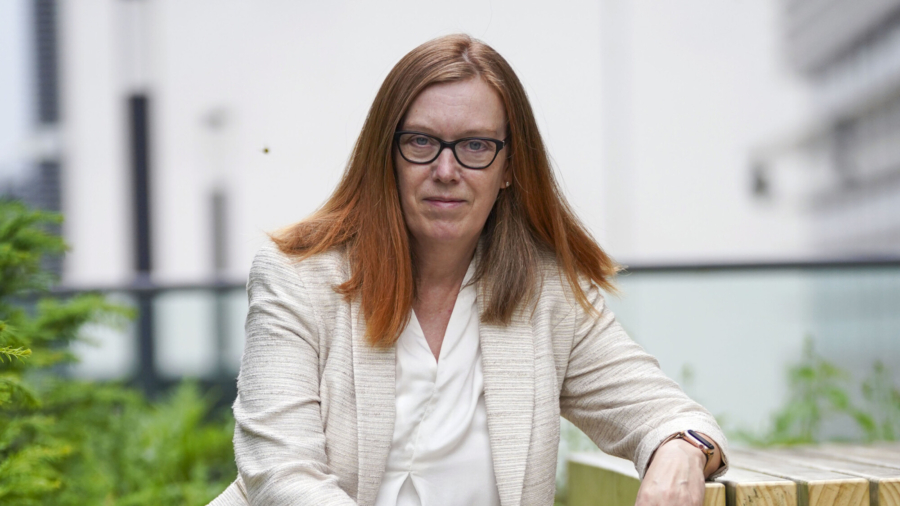The COVID-19 pandemic is far from over and the next one could be worse, according to one of the scientists behind the Oxford-AstraZeneca COVID-19 vaccine.
“This will not be the last time a virus threatens our lives and our livelihoods,” said Professor Dame Sarah Gilbert in excerpts released before a speech on Monday. “The truth is the next one could be worse. It could be more contagious, or more lethal, or both.”
The scientific advances made in fighting deadly viruses “must not be lost” because of the cost of fighting the current pandemic, she said while delivering this year’s Richard Dimbleby Lecture, named in honor of the late broadcaster.
Gilbert, a University of Oxford vaccinology professor who developed the COVID-19 vaccine used in more than 170 countries with her team, warned that a future pandemic could be deadlier.
“We cannot allow a situation where we have gone through all we have gone through, and then find that the enormous economic losses we have sustained mean that there is still no funding for pandemic preparedness,” she continued. “The advances we have made, and the knowledge we have gained, must not be lost.”
She added, “Just as we invest in armed forces and intelligence and diplomacy to defend against wars, we must invest in people, research, manufacturing, and institutions to defend against pandemics.”
Gilbert cited the newly detected COVID-19 variant of concern called Omicron, which was reported by South Africa to the World Health Organization in late November. The new strain has prompted a wave of travel restrictions and local measures as researchers investigate its transmissibility.
Much remains unknown about the variant, including whether it is more contagious as some health authorities suspect, whether it makes people more seriously ill, and whether it can thwart vaccines.
The spike protein of the variant “contains mutations already known to increase transmissibility,” she said.
“But there are additional changes that may mean antibodies induced by the vaccines, or by infection with other variants, may be less effective at preventing infection with Omicron,” Gilbert added. “Until we know more, we should be cautious, and take steps to slow down the spread of this new variant.”
A day earlier, Dr. Francis Collins, the director of the National Institutes of Health (NIH) said he believes that the Omicron COVID-19 variant is unlikely to be the last.
“It’s certainly possible that this is not the last emerging variant that will attract a lot of attention and a lot of concern,” Collins said during an appearance on “Meet the Press” on Sunday, when pressed on whether a “new dominant variant” could emerge every six months.
“This one does have the largest number of mutations that we’ve seen so far—Omicron with about 50 mutations compared to the original Wuhan virus,” he said.
The Associated Press contributed to this report.
From The Epoch Times

